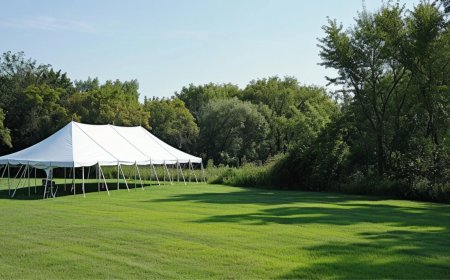Lifeguard Course: Start a Lifesaving Journey Today

Becoming a lifeguard is more than just earning a whistle and a seat by the pool. It's about developing a powerful combination of life-saving skills, leadership, responsibility, and confidence. Whether you dream of working at a sunny beach, a bustling water park, or a local community pool, a certified lifeguard course is your gateway to a meaningful and impactful role. This article explores what a lifeguard course entails, why its worth pursuing, and how it can transform your career and character.
What Is a Lifeguard Course?
A lifeguard course is a structured training program designed to equip participants with the knowledge and skills needed to prevent and respond to aquatic emergencies. Most courses are offered through recognized organizations like the American Lifeguard Association, and other nationally certified bodies. These programs include a combination of theoretical learning, practical skills, and real-life scenario simulations.
The standard lifeguard course typically covers:
-
Water rescue techniques
-
CPR (Cardiopulmonary Resuscitation) and AED (Automated External Defibrillator) use
-
First aid and emergency response
-
Surveillance strategies and scanning techniques
-
Risk assessment and accident prevention
-
Team coordination and communication skills
Courses often conclude with both written exams and in-water practical assessments to ensure candidates meet the required standards before certification is granted.
Who Should Take a Lifeguard Course?
Lifeguard training is ideal for:
-
Teenagers and young adults (usually aged 15 and above) looking for a rewarding summer job
-
College students seeking flexible work while in school
-
Outdoor and fitness enthusiasts who enjoy water activities and physical fitness
-
Aspiring emergency responders who want to gain early experience in lifesaving and crisis management
-
Anyone passionate about safety and helping others
Prerequisites typically include a pre-course swim test that assesses endurance, strength, and basic water skills, such as treading water and retrieving objects from the pool floor.
The Benefits of Becoming a Lifeguard
1. Life-Saving Expertise
The most immediate and profound benefit is the ability to save lives. Youll gain confidence in responding to critical situationsnot only in aquatic environments but also in everyday emergencies.
2. Job Opportunities
Certified lifeguards are in high demand across public pools, resorts, beaches, cruise ships, camps, and hotels. A lifeguard certification significantly boosts employability, especially for students and seasonal workers.
3. Personal Development
The training instills responsibility, alertness, discipline, and the ability to make decisions under pressure. Youll become more observant, responsive, and preparedqualities that benefit all aspects of life.
4. Physical Fitness
Lifeguard training emphasizes strength, stamina, and agility. The course itself is physically demanding and will help improve your cardiovascular health, swimming efficiency, and overall fitness.
5. Leadership and Teamwork
Lifeguards often work in teams and must collaborate during emergencies. Youll develop leadership qualities and sharpen your communication and conflict-resolution skills.
Course Format and Duration
A standard lifeguard certification course usually takes between 20 to 30 hours to complete, spread across several days or weekends. Some institutions offer blended learning options that combine online theory with in-person training, ideal for those with busy schedules.
Youll need to demonstrate proficiency in both individual and team-based rescues, perform CPR on manikins, administer first aid, and show your ability to assess scenes for safety. After successful completion, certifications are typically valid for two years and can be renewed through recertification courses.
Specialized Lifeguard Training
For those who want to take their training further, many programs offer specialized courses such as:
-
Open Water Lifeguarding (for beaches and lakes)
-
Waterpark Lifeguarding
-
Lifeguard Instructor Training
-
Junior Lifeguarding Programs (for younger teens aged 11-14)
-
Swift Water or Surf Rescue Training
These courses cater to different aquatic environments and offer advanced rescue skills and situational training.
How to Get Started
To start your journey:
-
Choose a recognized training provider. Ensure the course is accredited and widely accepted.
-
Check prerequisites. Most programs require minimum age and swim capability.
-
Register and prepare. Familiarize yourself with the course materials and be ready for a physically engaging experience.
-
Stay committed. Show up, stay focused, and practice the techniques regularly.
Many training organizations also provide job placement assistance or connect graduates with local employers.
A Career That Makes a Difference
Becoming a lifeguard isnt just about a job; its about being a protector of lives. Every day on duty, lifeguards take on the responsibility of keeping people safe, preventing accidents, and acting swiftly in emergencies. It's a role that commands respect, demands vigilance, and offers immense personal satisfaction.
Whether you're looking for a summer gig, a side job, or a first step into emergency services, a lifeguard course sets the foundation for a meaningful path forward. Youll gain more than a certificateyoull gain the power to make a real difference.








































